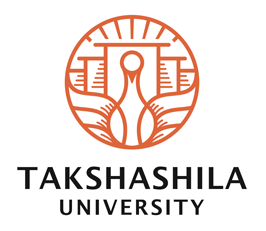M.Tech - Computer Science and Engineering (Big Data)
Big Data is a collection of data that is huge in volume, yet growing exponentially with time. It is a data with so large size and complexity that none of traditional data management tools can store it or process it efficiently. Big data is also a data but with huge size.
Syllabus:
The next module teaches students all the essentials in Big Data technology, including Hadoop, HDFS, Map Reduce, NoSQL and MongoDB, batch processing, and real-time processing.
Program outcomes:
Engineering knowledge: To apply the knowledge of mathematics, wisdom, engineering fundamentals, and an engineering specialization to the result of complex engineering problems.
Ethics: To apply ethical principles and commit to professional ethics and responsibilities and norms of the engineering practice.
Individual and Team: To function effectively as an individual, and as a member or leader in diverse teams, and multidisciplinary settings.
Modern tool usage: To Create, select and apply appropriate techniques, resources, and modern engineering and IT tools including prediction and modeling to complex engineering activities with an understanding of the limitation.
Innovative: Drives scientific and societal advancement through technological innovation and entrepreneurship.
Inspiring and Collaborative: To become a leader and a responsible citizen whose strengths come from an ability to draw on and contribute to diverse teams, expertise, and experiences.
Broadly Educated and Versatile: Able to draw upon foundational knowledge, learn, adapt and successfully bring to bear analytical and computational approaches to changing societal and technological challenges.
Cultural and Global Awareness: Recognize the applicability of computing and evaluate its impact on individuals, organizations, and global society.
Problem Solving: Identify problems and formulate solutions for systems and organizations while reconciling conflicting objectives and finding compromises.
Technical Expertise: Apply knowledge of computing and mathematics within technical domains.
Professional Practice: Evaluate and use appropriate methods and professional standards in computing practice.
Practical knowledge:
Practical knowledge, which is an important part of technical education, can be achieved by a well-equipped Computer Laboratory. The Computer Laboratory is a basic component of the Institute’s infrastructure, providing a wide range of support to the students and faculties involved in research and other academic activities. The Laboratories provides the hands-on need of today’s industry requirements and what they learn in the classrooms. Our curriculum includes a wide variety of subjects to enhance the practical knowledge of the students, which are listed below:
- Computer programming
- Data structure
- Design and analysis of algorithm
- Object-oriented programming Language
- Computer networks
- Database management system
- Operating system
- Enterprise solutions
- Embedded systems
- Web technology
- Platform Technology
- Hardware and troubleshooting
- Artificial intelligent Laboratory
Industries Hiring M. Tech CSE (Big Data) Degree Holders:
- Education industry
- Healthcare industry
- Government sector
- Media and Entertainment
- Weather Patterns
- TransportationIndustry
- Banking Sector
- Marketing
- Space Sector
- Business Insights
Jobs vacancies for M. Tech CSE (Big Data) Degree Holders:
- Big data engineer
- Senior Big data engineer
- Big data developer
- Software engineer
- Senior Software engineer
Conclusion:
The M. Tech CSE (Big data) sector’s growth has created attractive job prospects for professionals. The need for CSE (Big data) professionals has grown in tandem with the rising number of job possibilities in this industry.
After finishing their education, Computer Science Engineers typically find employment in various areas, including IT/Software companies, academic institutions, sales and marketing organizations, journalism, editing and content corporations, engineering firms, etc.
